
Developer: Rice Cooker Republic
Publisher: Rice Cooker Republic
Platform: PC
Tested on: PC
Bokida: Heartfelt Reunion – Review
Rice Cooker Republic released its first game which has its root in their nearly award winning student project. In 2014 they received an honorable mention from the Independent Games Festival in the ‘Student Showcase Finale’. Their title was mentioned alongside successful indie games such as ‘Risk of Rain’ and ‘Papers, please’. After being added to Steam Greenlight on February 28th they rapidly gained attention on the forums. Let us take a look at why they received the honorable mention and whether or not they should receive actual awards.
Story
It starts out vague as vague can be, yet rather intense. The story of Bokida is one you will uncover mainly throughout the game itself. The prelude story is combined exceptionally well with visual representations and the voice of a Japanese lady who tells you why it is necessary for ‘the two’ to come back together. It seems to be about two moons attempting to get back together to create balance like Yin-Yang, which sounds like the weirdest Tinder date ever.
When the gameplay begins, you will find yourself wandering through a black and grey forest of sorts. The only instructions received are your basic orientation and mobility tutorials. After a few minutes of roaming along the beaten path, a tunnel pops up. At the end of the tunnel, white light pierces through the black and grey woods. All of a sudden you’re in a white temple with a terrace and just past the edge you will see a bottomless depth which is filled with copies of the same terrace alongside its walls.
As you progress through the game, you will find glyphs which will tell you more about their story. When hovering your mouse over the glyphs, mysterious quotes pop up: “This stream flows to support all of our endeavors”, “It fulfills its purpose silently and makes no claim”, “The 10000 things depend upon it, it holds nothing back”. At first these quotes look like the Tumblr page of some disturbed teenager, but they appear to be made by Laozi, a Chinese philosopher who was born a mere 2600 years ago.
Although the story sounds intriguing, for the biggest part of the game, it doesn’t feel like it’s really leading up to something. It’s vague and mysterious, sometimes a bit too mysterious. After the amazing intro, the little bits of storyline don’t feel like they fit together which causes you to focus on the graphics and gameplay. That’s kind of disappointing, because with such impressive graphics it feels as if it deserves an impressive narrative as well.
It would almost be appropriate to just say “Wow.” and leave it at that. The minimalistic near monochrome settings are incredibly appropriate considering the Yin-Yang style/story the game has. The huge open fields and mountains let you decide your own route and techniques to finish the puzzles. The intro of the game already features some impressive and intense graphics, it looks as if the idea of Yin-Yang being two moons in balance has been the main inspiration for both the graphics and storyline. After some time in the game, more colors will appear. Yellow and blue fish seemingly swimming through the air and colored blocks, which when cut into pieces whilst in the anti-gravity mode will float through the air like leaves in Autumn. Also the tunnels, temples and monoliths have an awesome vibe around them in the monochrome settings.
Even though the main color is white and the landscapes are.. well.. white, the mountains and temples are still impressive thanks to subtle difference with some slightly grey coloring. Not many games dare to use little to no colors, but Bokida uses the lack of color to their advantage. From the grey bamboo forest in the first few minutes, to the bright white mountains and temples later on, the game looks impressively gorgeous whilst basically using just monochrome colors. If you were to compile a keyboard heat map, it’s highly probable that the print screen button has gone through a few rough hours whilst playing Bokida.
The audio is subtle yet impressive just like the monochrome graphics. It motivates the feeling of exploration and pulls you into the world. Games often publish an album with the soundtracks and sell it as DLC, this is one of those times where it might actually be worth it to lay down a few bucks for that. It’s a soundtrack which, on its own, is already pleasant to listen to. Remember Bastion and its amazing soundtrack? Bokida’s soundtrack comes close to that. Also, the Japanese voice lines at the intro were incredibly complimentary, considering many games use it as a gimmick to sound interesting, Bokida actually embraces it into their general theme.
Gameplay
How often do you read ‘open-world adventure with puzzle elements and a minimalist aesthetic’ and just skip the heck out of the game because it sounds dull? This time, maybe you shouldn’t. The main objective is to solve puzzles by using the multiple tools available to manipulate the blocks you’ve spawned and the world around you. At first, you will only be able place blocks but after some progression more tools will become available to you.
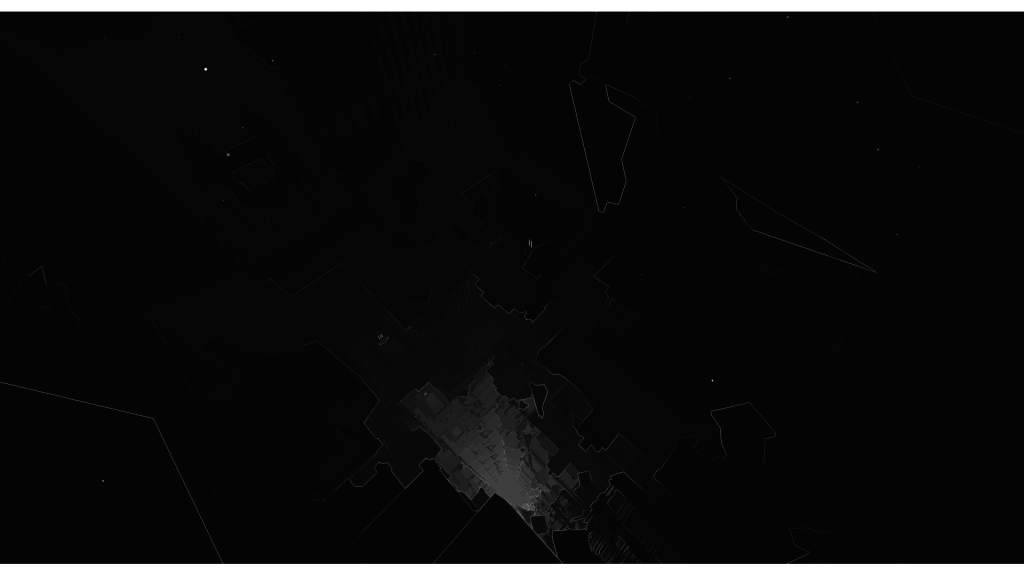 Let’s start with the first tool, ‘build’, this is your bread and butter tool with which you’ll be able to place blocks. Placing blocks isn’t only useful for Minecraft-esque building and climbing, it’s also used in the puzzles. You might come across doorways which seem to serve no purpose at all, until you fill it with blocks and blow it out. All of a sudden an entire world appears behind the seemingly dull wall. The second tool, ‘cut’, uses a mechanic which sadly hasn’t been used in many other games. It basically just cuts a block or blocks by using some sort of slash reminiscent of how the one in Fruit Ninja. You can up/downscale the slash by holding the mouse button. The slash can be used to, for example, cut a block to a certain angle for a laser to bounce from one puzzle piece to another. The third tool, ‘push’, can be used to push blocks in to place or to break through the before mentioned doorways. After a while the tool is also able to ‘shoot’, instantly breaking the blocks. The last tool, ‘clean’, is useful for cleaning up after you’ve made a mess of the puzzle area. By holding down your left mouse button, you can upscale the tool to your preferred size.
Let’s start with the first tool, ‘build’, this is your bread and butter tool with which you’ll be able to place blocks. Placing blocks isn’t only useful for Minecraft-esque building and climbing, it’s also used in the puzzles. You might come across doorways which seem to serve no purpose at all, until you fill it with blocks and blow it out. All of a sudden an entire world appears behind the seemingly dull wall. The second tool, ‘cut’, uses a mechanic which sadly hasn’t been used in many other games. It basically just cuts a block or blocks by using some sort of slash reminiscent of how the one in Fruit Ninja. You can up/downscale the slash by holding the mouse button. The slash can be used to, for example, cut a block to a certain angle for a laser to bounce from one puzzle piece to another. The third tool, ‘push’, can be used to push blocks in to place or to break through the before mentioned doorways. After a while the tool is also able to ‘shoot’, instantly breaking the blocks. The last tool, ‘clean’, is useful for cleaning up after you’ve made a mess of the puzzle area. By holding down your left mouse button, you can upscale the tool to your preferred size.
These tools combined with the ability to double jump, hover, glide and pull yourself towards blocks creates an environment which fuels your ability to experiment and enjoy the game even when you’re not busy with solving puzzles.
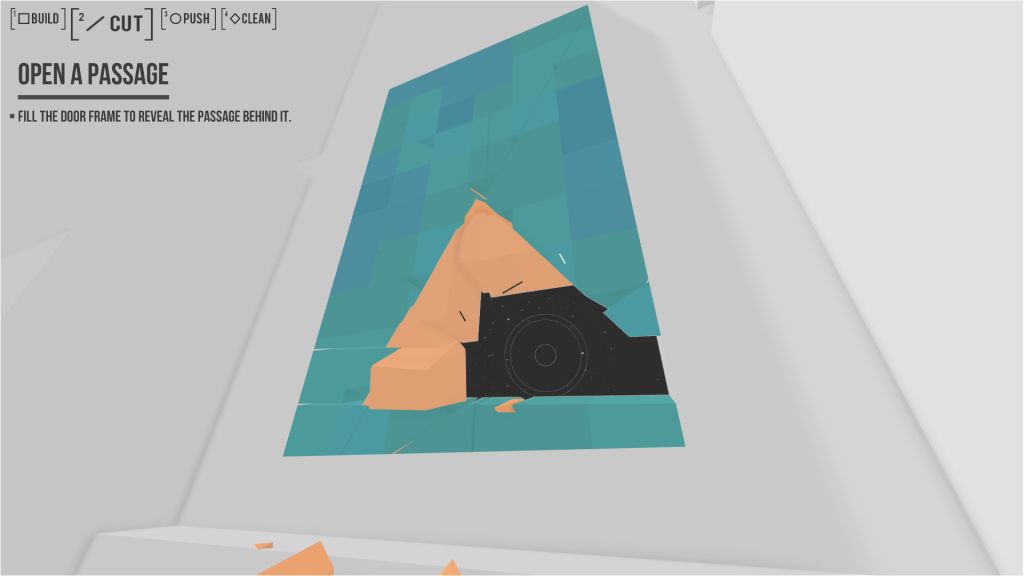 The puzzles grow increasingly more difficult, yet they aren’t really that much of a challenge. Luckily some puzzles have a really clever way of making sure you won’t fix it within the minute. It really has a Portal feel to it, though its puzzles are more like those of Antichamber. There are also black orbs scattered around the world, they’re called ‘echoes’ and they serve a purpose in the storyline.
The puzzles grow increasingly more difficult, yet they aren’t really that much of a challenge. Luckily some puzzles have a really clever way of making sure you won’t fix it within the minute. It really has a Portal feel to it, though its puzzles are more like those of Antichamber. There are also black orbs scattered around the world, they’re called ‘echoes’ and they serve a purpose in the storyline.
Some people might find it bothersome that you’ll have to find the puzzles without any guidance. Nothing in Bokida directs you in any way. Some might see this as a positive, some might see this as a negative. The world and the puzzles are alluring, but the lack of purpose might be a buzz kill for some people.
Conclusion
Bokida sets an example of using a minimalistic setting as an advantage. The tools, even though simple, feel awesome to use. Building a pillar until you knock your head on the skybox, not very special, yet always fun. Jumping from the top of the pillar and gliding above the beautiful landscapes. Building a huge wall, cutting a thousand slices through the wall and blasting it to pieces feels awesome and looks amazing. Even if finding or solving the puzzles isn’t your kind of jam, it’s still quite fun to mess around in this huge playground. Does it deserve an award? You tell us. Did we enjoy? Most definately.
Bokida: Heartfelt Reunion - Review,

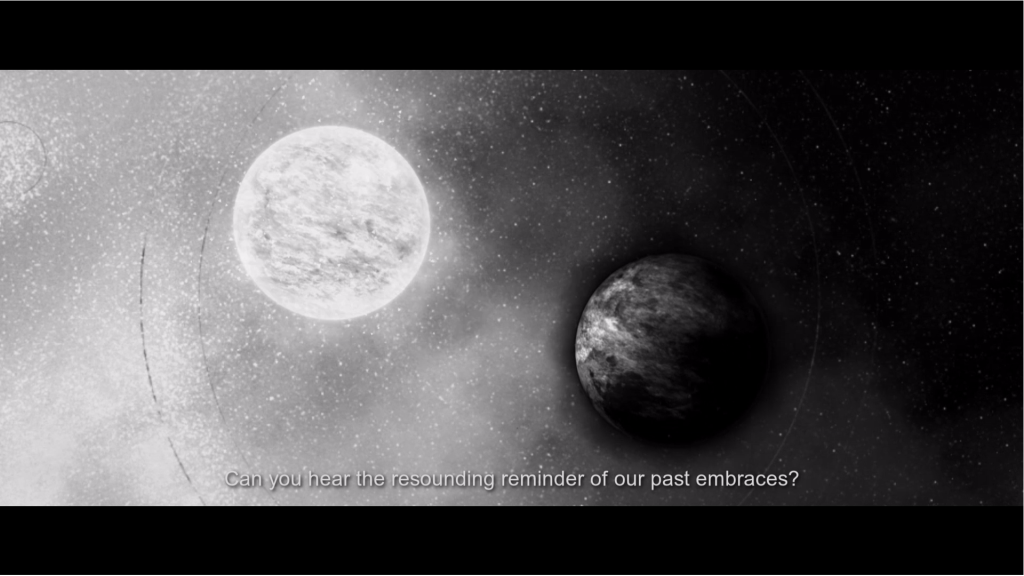
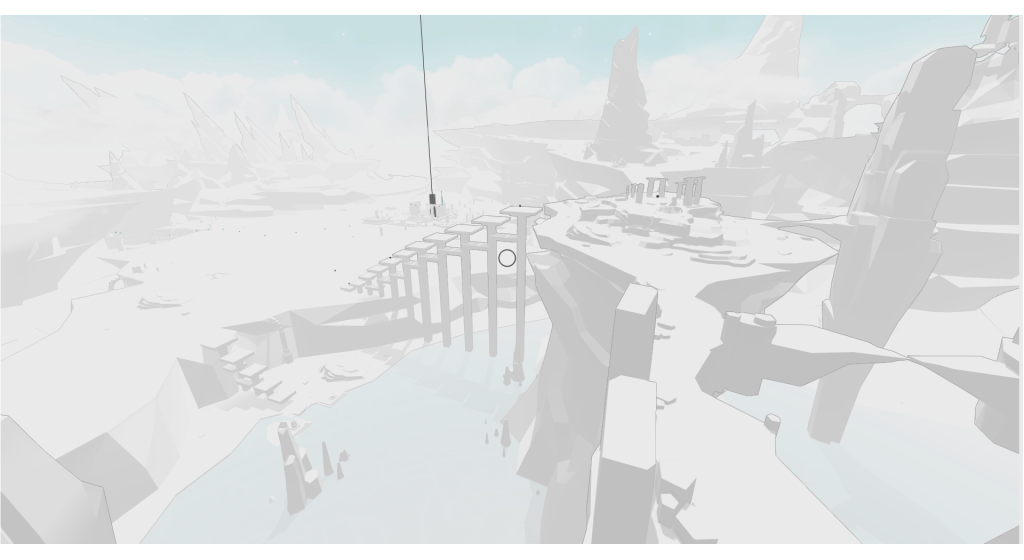
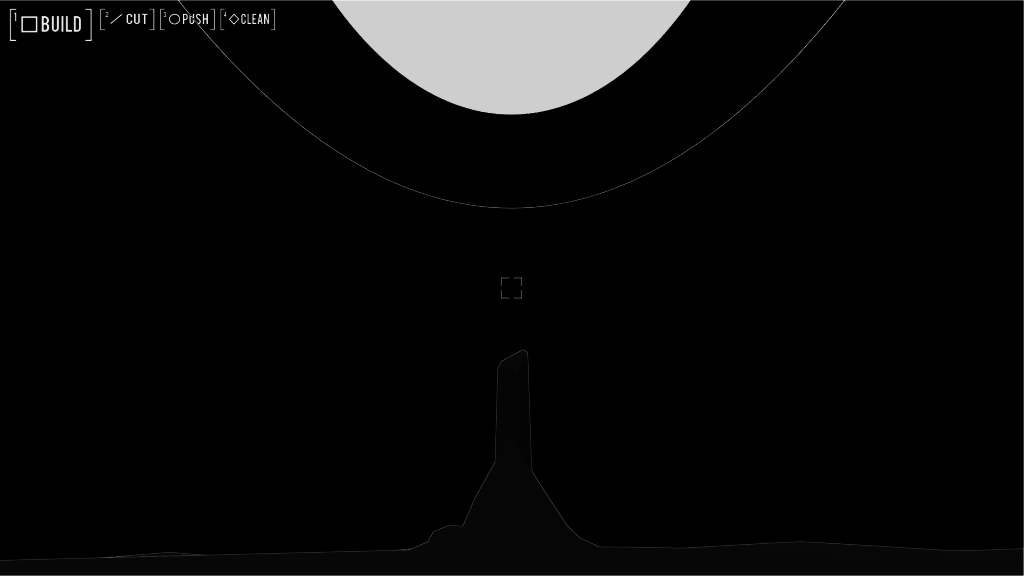

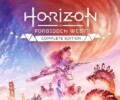


No Comments